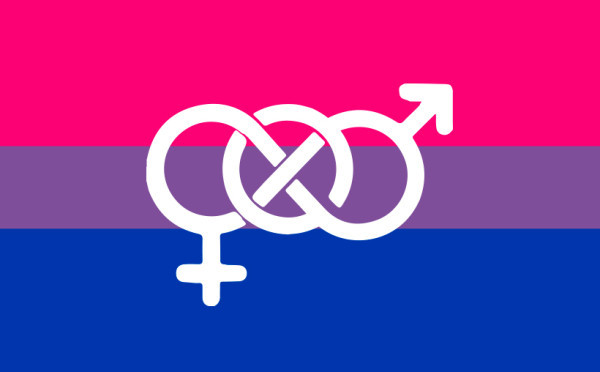By Hayley Van Allen
Bi Visibility Day has been held on September 23rd since 1999 to increase awareness and acceptance of the bi+ community. The annual event is almost as old as many students at the 5Cs – older than some – and yet stereotypes and harmful attitudes still follow those who identify as bisexual+. As a result, members of the bi+ community are ostracized by both the LGBT* and straight communities. by heterosexist society.
When conversations about identity and the LGBT* community arise, it is all too common to hear those who are bi or pan express concern that they’re not gay enough to be a part of the community. This is especially true for those in a relationship with someone considered to be the “opposite” gender by heteronormative society.
This mindset is directly caused by bi-exclusionists within the LGBT* community, which contradicts the entire purpose and even acronym of the community. For as long as there has been a visible queer justice movement, there have been those that have tried to gate-keep and exclude certain members. The #droptheb movement – and effort to change the acronym to just LGT – is just one of the ways that bisexuals have been pushed from the LGBT* community.
Much of the discrimination towards bisexuals from members of the LGBT* community comes from an insistence that those who identify as bi+ have certain privileges that other members do not. The main instance of these accused privileges is straight passing privilege, called such because bisexuals can supposedly pass as straight. Using just a bit of common sense this is debunked, because anyone can be straight passing if they hide enough of themself.
Although bisexuals make up the majority of the LGBT* community, the Pew Research Center conducted a study showing that only 28% of bisexual people in the US said that all or most of the important people in their lives are aware that they are LGBT. This could partly be why bi+ youth “experience higher rates of suicidality, substance use, bullying and sexual violence compared to their gay, lesbian and straight peers” (Bihealthmonth.org).
When all of this discrimination becomes internalized, bi+ people often internalize what is being accused of them. This is what leads to bisexuals stayed closeted more often than their gay counterparts; it’s what leads to more mental health issues; it’s what leads to feeling shame for being bi+ but still not feeling gay enough to be a member of the LGBT* community and take advantage of resources designed for them. Whether they want to be active members of the LGBT* community or not, every bisxeual person deserves love and support when navigating their identity.
There are many unique challenges to being bisexual+ that are too often overlooked by members of the LGBT* community and heterosexist society. Whether you’re a member of the LGBT* community or just an ally, if you’re not supporting and raising up your bi+ siblings, what are you even doing? Visibility is important. Acceptance is important. Don’t forget after September 23rd has passed.



